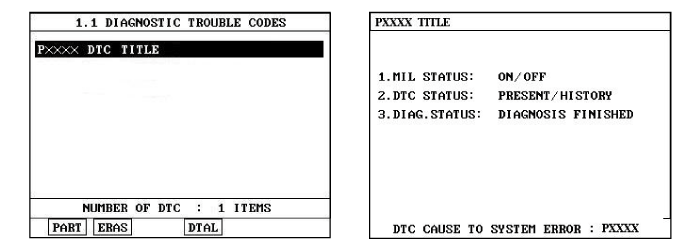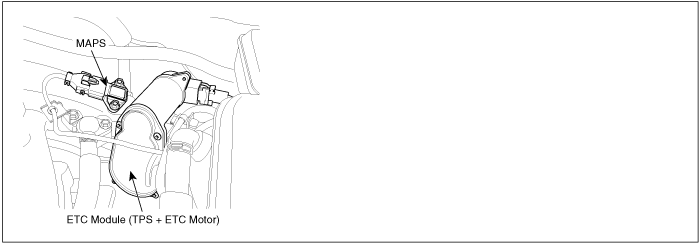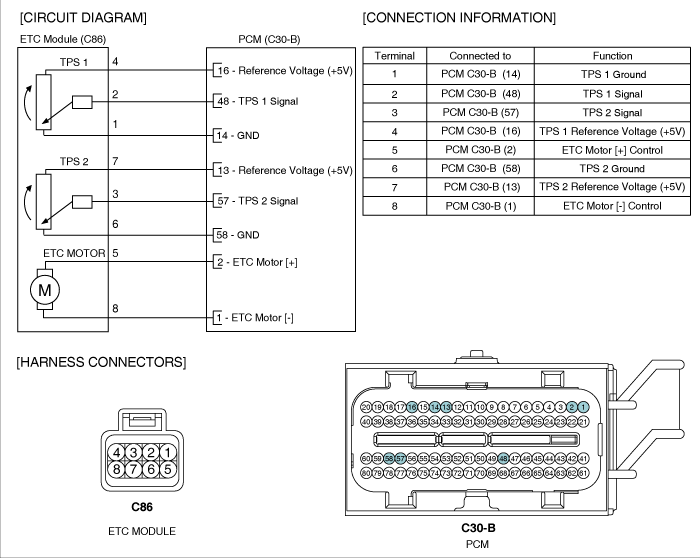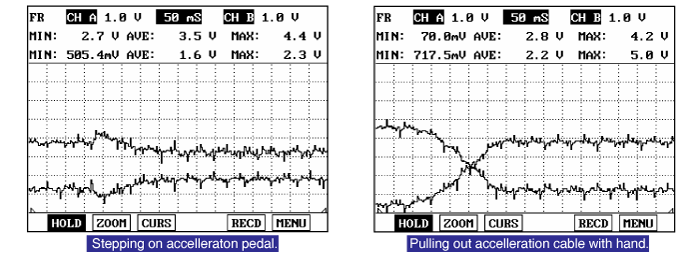Check DTC Status
Connect scantool to Data Link Connector(DLC).
IG "ON".
Select "Diagnostic Trouble Codes(DTCs)" mode, and then Press F4(DTAL) to check DTC's information from the DTCs menu
Read "DTC Status" parameter.

Is parameter displayed "Present fault"?

▶ Go to "System inspection" procedure.

▶ Fault is intermittent caused by poor contact in the sensor’s and/or PCM’s connector or was repaired and PCM memory was not cleared. Thoroughly check connectors for looseness, poor connection, ending, corrosion, contamination, deterioration, or damage. Repair or replace as necessary and go to "Verification of Vehicle Repair" procedure.



